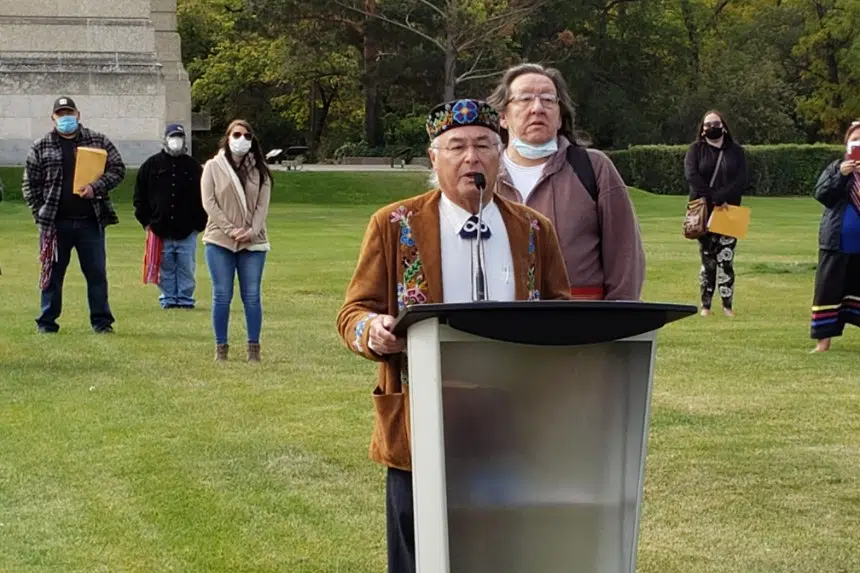A Saskatchewan legal group is calling for change in how the province regulates hunting and fishing rights for Mtis people.
Currently, those living outside of parts of northern Saskatchewan are not recognized under the Treaty and Aboriginal Rights for Hunting and Fishing Guide.
“Individuals are expected to follow all current hunting and fishing laws,” it states of those outside of two specific zones.
It’s a policy that Clem Chartier, a lawyer with the Mtis Legal Research and Education Foundation and the former president of the Mtis National Council, wants changed.
He believes hunting rights should apply equally to Mtis people across the province.
“There’s an absence of the recognition and respect of the Mtis in southern Saskatchewan, and that has got to change, for sure,” he said.
He is calling on the provincial government to work with the Mtis Nation-Saskatchewan to develop an agreement that allows the MN-S to have the final say in hunting and fishing rules for Mtis people across the province.
The lack of such an agreement, he argues, goes against the outcome of a 2007 provincial court case. Donald Belhumeur, a Regina Mtis man, was accused of fishing without a licence, but was found not guilty due to Indigenous rights.
“The sorry fact of the matter is that the Saskatchewan provincial government is not respecting the rule of law, not respecting the decision, not respecting the right of the Mtis … to harvest fish and wildlife for food,” Chartier said in a letter to Justice Minister Don Morgan.
Charles Belhumeur — who attended the media conference in place of his brother — believes the government’s lack of an agreement could have some underlying motives.
“They have a profiteering attitude towards the province’s resources. That’s a big motivation in denying Mtis rights, because they sell all of these licences for pretty big sums of money, and they’re worried that we will cull the animals to the point they won’t be able to do that,” he said.
However, Chartier believes it could potentially be fixed without disagreement.
“I’m not even sure if (Morgan) knows that this case exists. We’re not sure at which level the courts are being disrespected,” Chartier said.
If the provincial government responds and doesn’t intend to change things, Chartier would look into some kind of higher legal process, though he isn’t yet sure what that would be.
“I trust that your government, now that this matter has been brought to your attention, will do the right thing and rectify this most egregious injustice,” he said, addressing Morgan.
EDITOR’S NOTE: This is a corrected version of this story. Charles Belhumeur was misidentified in the original story and photo.











